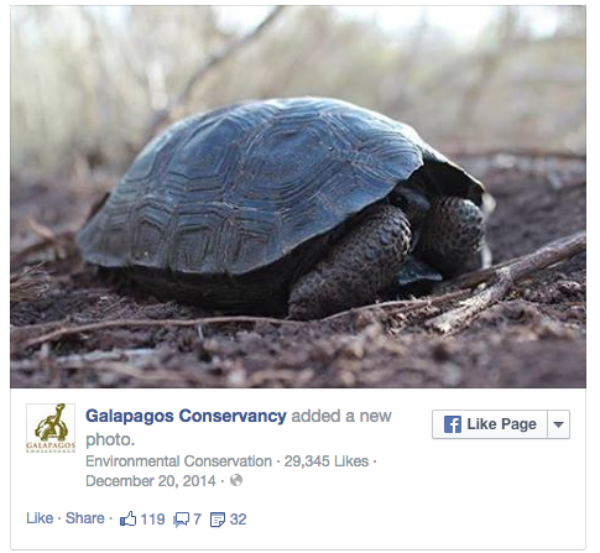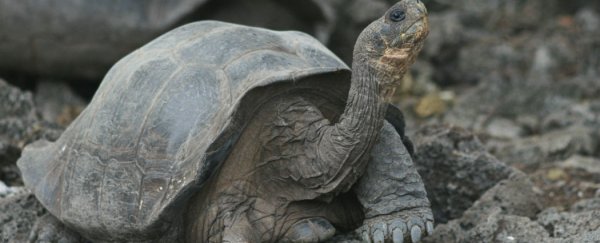It's the result of 50 years of conservation efforts, but for the first time in more than a century, baby saddleback giant tortoises (Chelonoidis ephippium) have been born on the Galapagos Island of Pinzón.
"We found 10 tiny, newly hatched saddleback tortoises on the island early last month," the team from Galapagos Conservancy reports in Nature. "There could be many more, because their size and camouflage makes them hard to spot. Our discovery indicates that the giant tortoise is once again able to reproduce on its own in the wild."
The island of Pinzón has an area of just 18 km2, and sits in the geographical centre of all the Galapagos islands. Being very low on defence mechanisms, the giant tortoise population on Pinzón was demolished very quickly with the introduction of rats to the island by visiting 17th and 18th century sailors, who ending up eating a lot of them themselves. As tortoise breeding can be an excruciatingly slow process, it takes a whole lot of time to build up a population again, but researchers are thrilled with the progress they're now seeing from a conservation program set up way back in the 1960s.
"This involved collecting eggs and raising hatchlings in captivity for four to five years to reach 'rat-proof' size, as well as drastic rat-eradication measures," the team reports. "These strategies have now enabled the species to stabilise itself."
As well as being great news in and of itself, it's a promising precedent that conservationists working on Australia's Lord Howe Island would be no doubt be super-excited about. In an effort to reintroduce captive-bred Lord Howe Island stick insects (Dryococelus australis), one of the rarest - and most bizarre - insect species in the world to their native island home, researchers are undergoing a process of total rat eradication on Lord Howe Island.
It's bad news for the rats - it's not their fault they're so incredibly successful at multiplying and surviving - but it's the best chance our endangered animals have of getting their homes back.

